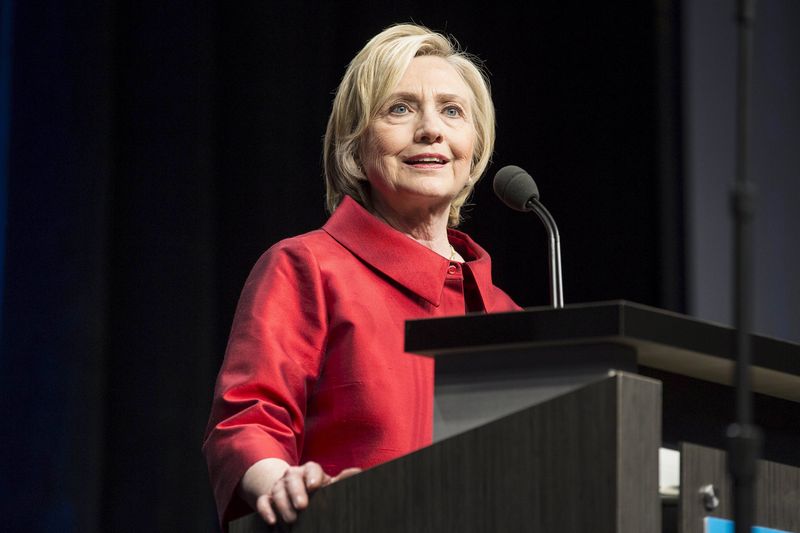By Amanda Becker and Emily Flitter
WASHINGTON/NEW YORK (Reuters) - Democratic presidential contender Hillary Clinton has raised more than $45 million since she entered the race in April, aides said on Wednesday, setting a fast pace in what is sure to be the most expensive U.S. political campaign in history.
The fundraising figure, announced by the campaign on Twitter (NYSE:TWTR), did not include a breakdown of the total number of donors to Clinton, the average donation, or how many donors have already given the legal maximum for the primary campaign of $2,700.
But campaign aides said 91 percent of the donations were in amounts of $100 or less, and touted the figure as a sign of broad-based grass-roots support as she fights off a challenge from the party's liberal wing led by U.S. Senator Bernie Sanders of Vermont.
The Sanders campaign said it had received contributions from more than 200,000 individuals since he entered the race at the end of April, and donations averaged about $37 per person.
The Clinton haul surpasses the $42 million in primary funds raised by President Barack Obama in 2011 in the first quarter after he announced his re-election bid, the previous record for the first quarter of a White House campaign.
Clinton was the first 2016 presidential contender to report even a rough total on the fundraising numbers, which are viewed as an early indicator of a candidate's appeal and staying power in the race.
Later on Wednesday, Republican presidential candidate Ben Carson reported he had raised $8.3 million in the last three months, and a total of $10.5 million since forming an exploratory committee in March.
The specific fundraising figures for the fiscal quarter ending on June 30 must be reported to the Federal Election Commission by July 15. Clinton said on Twitter her campaign was "still running the numbers" for the final report.
Clinton has kept up an intensive national fundraising schedule since her April campaign launch, holding dozens of fundraising events, often at wealthy donors' homes.
The campaign features a "Hillstarter" program that asks top donors to host fundraising events that each bring in at least $27,000 from donors.
The Associated Press reported that Clinton has raised at least $19.5 million at 61 such fundraisers, an amount that makes up at least 43 percent of her total. It said the percentage was sure to be even higher because it used the most conservative ticket prices to calculate the total raised at each event.
'CHIP IN $1'
On Tuesday, the last day of the quarter, Clinton's campaign sent an email asking supporters to "chip in $1" to help it reach its goal of grass-roots donations.
Fundraisers for Clinton said the pace has been brisk, but some smaller donors were not in a hurry to open their wallets because it is still early in the race.
"These larger-dollar events have always been the early money. The smaller dollars tend to come later in the cycle," said Lorraine Harris, a Clinton fundraiser in the San Francisco area.
Another fundraiser, who asked not to be named, said, "There's a general feeling of 'We're going to be for Hillary, but we'll get around to it.'"
The former secretary of state, U.S. senator and first lady has a big lead in opinion polls over three Democratic challengers. Fourteen Republicans are running for their party's nomination ahead of the November 2016 presidential election.
Republican Carson, a retired neurosurgeon, received 210,000 donations from 151,000 donors, spokesman Doug Watts said.
The fundraising numbers for Clinton and other candidates will pale compared with the huge sums expected to be raised by allied super PACs, which will be reported separately from the campaigns.
Those groups are legally not supposed to work in concert with the candidates but can advertise on their behalf. About $1.5 billion could be spent on Clinton's bid between her campaign, allied super PACs, the national party and other outside groups, some experts have predicted.
In that context, the $45 million raised by Clinton is "a drop in the bucket," said Nick Nyhart, president of Every Voice Center, a group that wants to eliminate big money in politics.

"The bulk of the fundraising is ahead of them," he said.